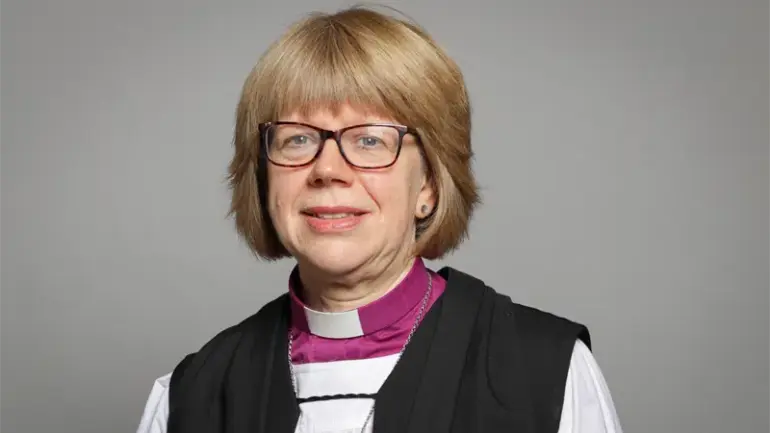The Church of England has named Sarah Mullally as the next Archbishop of Canterbury, making her the first woman to serve as the ceremonial head of Anglican Christianity worldwide.
Mullally’s historic appointment, announced Friday, has been met with both celebration and controversy. While welcomed by many in the UK, it has drawn immediate criticism from conservative Anglican leaders, particularly in Africa, where opposition to women’s ordination and LGBTQ+ inclusion remains strong.
A former Chief Nursing Officer for England, the 63-year-old Bishop of London succeeds Justin Welby, who stepped down amid criticism over his handling of a child abuse cover-up and his perceived politicisation of the role.
Mullally inherits leadership of a deeply fractured global Anglican Communion, which includes churches from over 165 countries. Long-standing divisions over the role of women in church leadership and the inclusion of same-sex couples have only intensified in recent years.
Laurent Mbanda, Archbishop of Rwanda and chair of the Global South Fellowship of Anglican Churches—a conservative bloc—told Reuters that Mullally’s appointment would not bring unity. A Nigerian bishop went further, calling the decision “very dangerous” and asserting that women should remain under male leadership.
“The Church is drifting away from scripture,” said a statement from the Church of England’s evangelical wing, which also voiced opposition to the appointment.
Since becoming Bishop of London in 2018, Mullally has supported blessings for same-sex couples—a major flashpoint within the Communion. Homosexuality remains illegal in many African nations, where conservative Anglican churches wield significant influence.
In an address at Canterbury Cathedral following the announcement, Mullally acknowledged the Church’s internal divisions and the slow pace of consensus on such contentious issues.
“These matters may not be resolved quickly,” she said in an interview with Reuters. Still, she pledged to support “every ministry to flourish, whatever our tradition.”
She also addressed broader concerns, calling for the Church to confront the abuse of power in light of past safeguarding scandals. Mullally condemned the rise in antisemitism, referencing Thursday’s deadly attack on a synagogue in Manchester that left two men dead.
Before entering the clergy, Mullally was a cancer nurse and rose to become England’s top nurse in the early 2000s. Ordained in 2002, she became one of the first women consecrated as a bishop in 2015.
Speaking previously about her dual vocations, she noted the common ground between nursing and ministry: “It’s all about people, and sitting with people during the most difficult times in their lives.”
She and her husband have two adult children. She currently sits in the House of Lords as a bishop and is a vocal opponent of proposed legislation to legalize assisted dying.
The Church of England has ordained women as priests since 1994 and as bishops since 2014. While these reforms have been embraced in Britain, many Anglican churches in Africa and Asia have rejected them, even while recognizing the Archbishop of Canterbury as their symbolic leader.
“Christ is the head of the Church, man is the head of the family, and from creation, God has never handed over the position of leadership to women,” said Bishop Funkuro Godrules Victor Amgbare of Northern Izon, Nigeria, in an interview with Reuters.
In contrast, the Vatican—where women are still barred from priesthood—issued a measured response, congratulating Mullally while acknowledging the “considerable challenges” facing the Anglican Communion.
In her Canterbury address, Mullally described the present age as one that “craves certainty and tribalism,” warning that the Church must help people navigate complex moral and political questions.
She emphasized the need for unity, compassion, and moral clarity in a world shaken by violence and division, referencing the “hatred that rises up through fractures across our communities.”
Linda Woodhead, a theology professor at King’s College London, praised Mullally’s leadership style. “Her emphasis on unity, gentleness, and strength is exactly what the Church—and the nation—needs right now,” she said.
As England’s established church, the appointment of a new Archbishop of Canterbury is a matter of state. The announcement came via Prime Minister Keir Starmer’s office and received formal assent from King Charles III, the Church’s supreme governor since the 16th-century split from Rome.
In Canterbury, longtime local David Pestell, 74, reflected on the Church’s history of turbulent leadership.
“Some of them have been very good, some pretty bad,” he said of past archbishops. “Some of them ended up murdered. I hope it doesn’t happen to this one. It’s delightful.”


